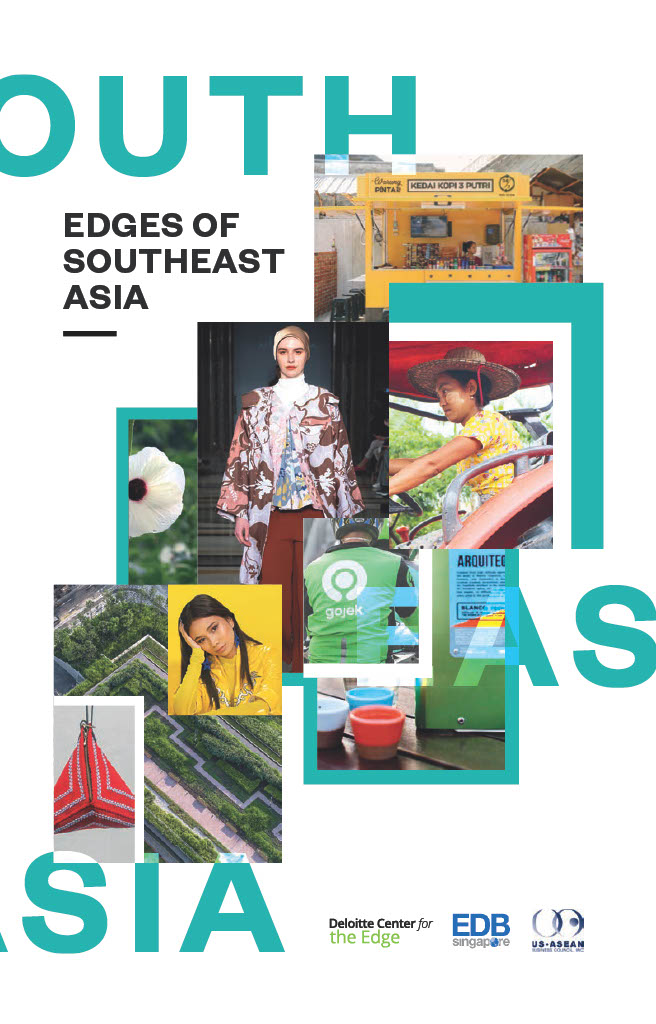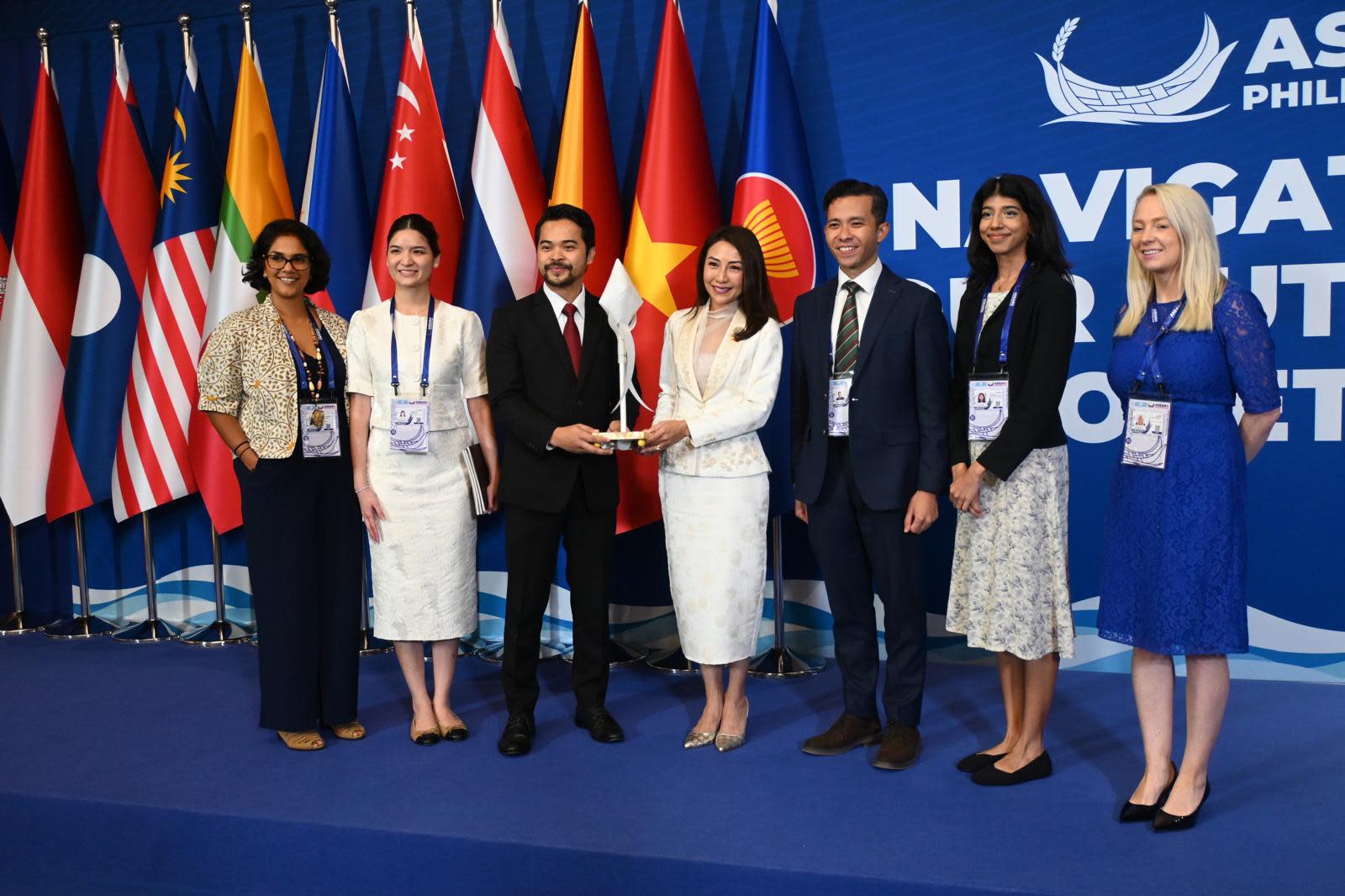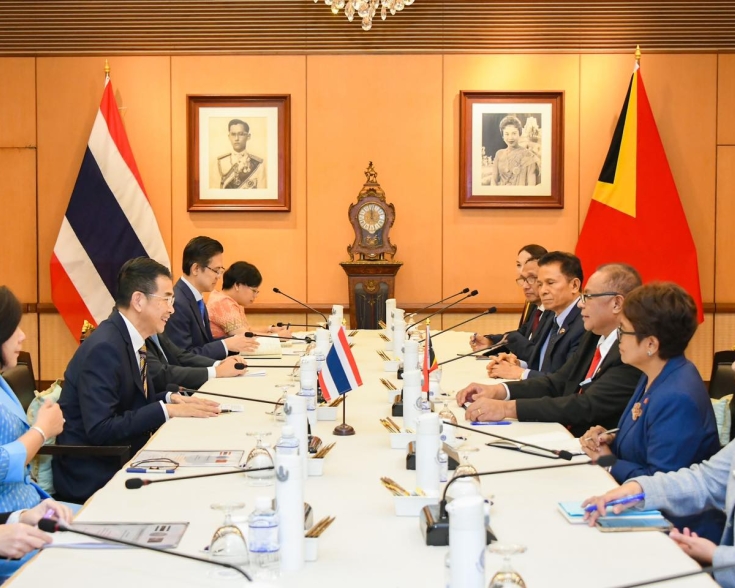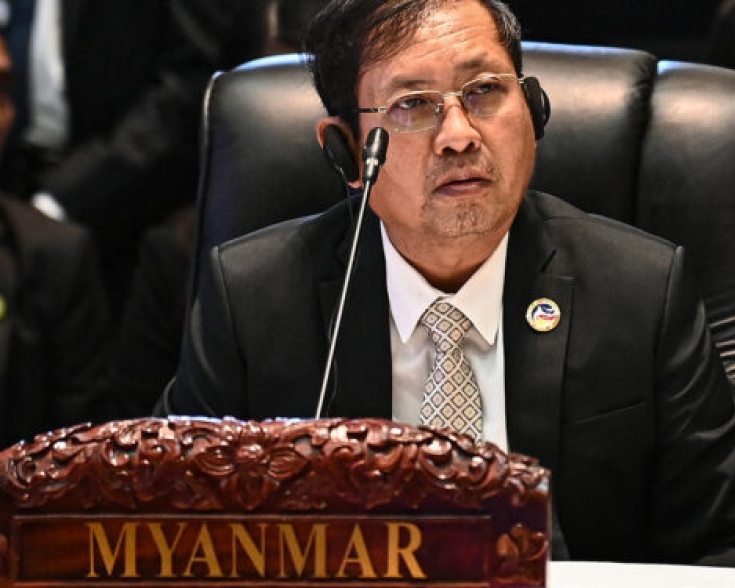Budget 2024: "Building Our Shared Future Together"
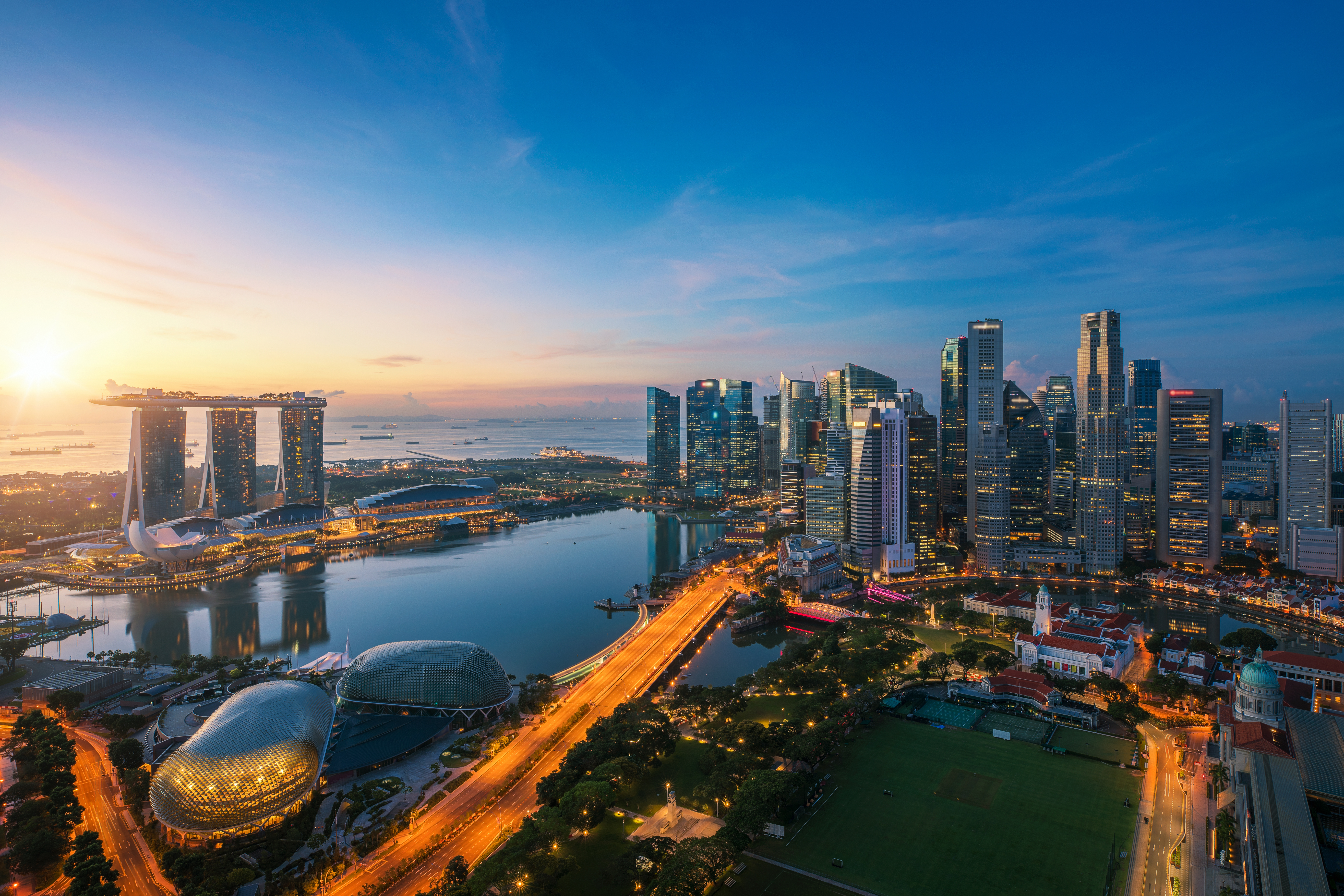
On February 16, Deputy Prime Minister (DPM) and Minister for Finance Lawrence Wong delivered Singapore’s Budget statement in Parliament for fiscal year (FY) beginning 1 April 2024 to 31 March 2025. This year’s projected budget of SGD 131.4 billion (USD 97.5 billion), a minimal increase from last year’s SGD 130.8 billion, aims to contribute significantly to the Forward SGinitiative of refreshing Singapore’s social compact and strengthening its domestic linkages. The focus of Budget 2024 can be categorized into 4 primary areas: (i) supporting Singaporeans, (ii) investing in talent, (iii) driving growth through businesses, and (iv) building a resilient future. Singapore’s financial policy for FY 2024 underscores its commitment to economic dynamism against a global backdrop of geopolitical uncertainty, inflationary pressures, and disruptions in supply chains and global energy markets. Parliament will debate the Budget from 16 February to 7 March, where further information on ministry specific initiatives will be discussed.
Financial Projections for 2024
The Budget is anticipated to help maintain a balanced fiscal position, projecting a small surplus of SGD 800 million or 0.1% of Singapore’s GDP in 2024. Singapore’s GDP is expected to grow between 1 to 3% in 2024, with rising revenues from taxes stemming from goods and services, assets, personal income, and motor vehicles. Government expenditure is expected to increase by 4.6%, with social spending comprising the largest portion. Singapore’s fiscal position remains tight in the medium term due to heightened spending on various sectors such as healthcare and energy transition. The People’s Action Party (PAP) is expected to pursue a financial strategy that is balanced, sound, and sustainable.
Supporting Singaporeans
A significant portion of the budget aims to provide near-term relief from the rising costs of living to individuals, households, and families including persons with disabilities and senior citizens in the form of cash handouts, vouchers, and rebates through enhancements under the Assurance Package and the roll-out of the Majulah Package. Under these packages and other support measures, individual out-of-pocket expenses in the areas of health, housing, education, and retirement are expected to decrease. This speaks to Singapore’s steadfast commitment to providing comprehensive societal support.
Investing in Talent
With the goal of having an economy that benefits the many rather than the few, Singapore is expected to invest heavily in its human capital by helping its workers refresh and update their skills as well as harness new technologies more effectively amidst growing adoption of AI-related technologies in the workforce. Budget 2024 is geared towards empowering mid-career Singaporeans, low-wage workers, involuntarily unemployed workers, and Institute of Technical Education (ITE) graduates. The benefits are aimed at enhancing their employability by promoting lifelong learning and skill mastery through programs associated to SkillsFuture and other income supplement schemes.
Driving Growth Through Businesses
Budget 2024 is anticipated to contribute to Singapore's positioning as a global hub renowned for innovation, dynamism, and profound capabilities, solidifying its status among the leading hubs worldwide. Support measures are tailored to firms that are actively pursuing restructuring and transformation initiatives in response to a more challenging operation landscape. In line with this goal, the Government will support businesses in 4 key areas –
Managing rising business costs: To aid businesses in managing escalating business costs such as wages, rents, and utilities, the Government is launching a new Enterprise Support Package valued at SGD 1.3 billion. As part of this initiative, the Enterprise Financing Scheme(EFS) will be enhanced, with the maximum working capital loan quantum being permanently raised to SGD 500,000. Furthermore, to support businesses’ internationalization efforts amid global supply chain disruptions, the enhanced maximum trade loan quantum of SGD 10 million will be extended until 31 March 2025.
Strengthening competitive advantages: DPM Wong emphasized the growing trend among governments worldwide to offer subsidies in attracting investments, leading to heightened competition faced by Singapore. To remain competitive, Singapore will be (i) investing SGD 3 billion in Research Innovation and Enterprise 2025, (ii) introducing the Refundable Investment Credit scheme, (iii) topping up the National Productivity Fund and the Financial Sector Development Fund, and (iv) enhancing the Partnerships for Capability Transformation (PACT) scheme. These supplementary resources will be directed toward research and related investment in advanced manufacturing, sustainability, the digital economy, and healthcare. Furthermore, efforts are geared at fortifying strategic partnerships between larger companies and SMEs in supplier development, co-innovation, capability training, internationalization, and corporate venturing.
Investing in emerging technologies: Singapore is planning to invest over SGD 1 billion over the next five years in artificial intelligence compute, talent, and development as part of its National AI Strategy 2.0. Part of the investments will be dedicated to securing access to advanced chips. Singapore aims to attract more global companies to establish their AI Centers of Excellence within its borders. With additional resources, the Government is striving to facilitate mass market access to broadband speeds of up to 10 gigabytes per second in the latter half of this decade
Supporting enterprises in sustainability efforts: It is imperative for local enterprises to be “sustainability-ready” to effectively participate in global supply chains. Consequently, the Government will extend support for green loans under the Enterprise Financing Scheme, while also broadening the Energy Efficient Grant to encompass manufacturing, construction, maritime, and data centers.
Building a Resilient Future
Budget 2024 will also invest in national resilience through energy and domestic security as well as a stronger national identity. To bolster energy transition infrastructure, the Government will pursue efforts in safeguarding energy security by establishing the Future Energy Fund. The country is also seeking new energy resources in the form of a new LNG terminal and the potential use of hydrogen, geothermal, and nuclear. To further coordinate defense operations, improve collaboration of industry, and spur innovation in cybersecurity, the Government will establish a new National Cybersecurity Command Center at the Punggol Digital District. Finally, to strengthen national solidarity, the Government will further invest in sports and the arts.
Other Tax Updates Under Budget 2024
Corporate Income Tax: Singapore will implement the Income Inclusion Rule (IIR) and a Domestic Top-up tax (DTT) as part of the second pillar of the Base Erosion and Profit Shifting 2.0 Initiative (BEPS), commencing in 2025. With this, DPM Wong noted that Singapore may see a reduction in its tax base, should multinational enterprises shift some of their activities to other jurisdictions in response to the new business environment. In any case, whatever additional revenues Singapore obtains from Pillar Two will need to be reinvested for Singapore to stay competitive in a post-BEPS world. Furthermore, the city-state is also rolling out a 50% Corporate Income Tax Rebate, capped at SGD 40,000, and a Cash Grant for the 2024 assessment year.
Personal Tax: Given the escalating cost of living, Budget 2024 will provide a personal income tax rebate of 50% for the Assessment Year 2024, with a cap of SGD 200. The relief extends to working mothers who are caring for their children. Additionally, the annual income threshold for dependent-related reliefs will be raised from SGD 4,000 to SGD 8,000 starting from the year of assessment 2025.
Property Tax: To uphold fairness in tax contributions among residents of higher-value properties, Budget 2024 will raise the annual-value (AV) bands of owner-occupied residential property tax rates, effective 1 January 2025.
Budget Impact
On Singapore’s Investment Landscape:
The subdued global economy, threatened by fragmentation arising from heightened national security concerns and diminishing economic interdependence, poses formidable challenges for trade-centric Singapore. As such, it is imperative for Singapore to uphold its competitive edge by concentrating on areas where it excels (e.g., connectivity, reliability, and rule of law) as well as investing in emerging spaces (e.g., AI, clean energy).
The budget emphasizes industry-specific measures to promote certain sectors in Singapore, namely advanced manufacturing, sustainability, digital economy, healthcare, and finance. Investors are likely to show increased interest and confidence in sectors highlighted by the Government, contributing to economic growth from strategic alignment between government priorities and industry promotion.
Significant efforts related to upskilling and reskilling will present a future-ready workforce in Singapore. Workers will gain new skills and capabilities that align with evolving industry needs and technological advancements. This, in turn, enhances the overall productivity, adaptability, and competitiveness of the labor force.
On MNC’s operating in Singapore:
With the implementation of BEPS 2.0, multinational companies in Singapore will face heightened tax pressures. It's important to note that the specific impact will depend on the finalization and implementation of the BEPS 2.0 measures, as well as the individual circumstances of each multinational company.
Given the Budget’s priorities centered on strengthening domestic linkages, multinational companies in Singapore can work closely with the Government in specific sectors such as health, energy, and education that help achieve these objectives.
Platforms such as the Refundable Investment Credit (RIC), Partnerships for Capability Transformation, and the National AI Strategy 2.0 will empower businesses to engage in high-value and substantive economic activities, streamline operations, and boost productivity, ultimately raising capabilities and winning new opportunities.
Additional Information: Commentaries on Budget 2024
Here Are the Winner and Losers for Singapore’s Budget (Bloomberg, February 16)
IT Leaders’ Reactions to Budget 2024 tech-related announcements (The Edge Singapore, February 16)
The Big 4’s Budget 2024 Wishlist: Did Singapore Deliver (Singapore Business Review, February 17)
Economists Applaud Spore’s 2024 Budget, But Some Concerned About Sustainability of Cash Handouts (The Straits Times, February 19)



